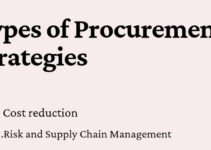According to an estimate by Harvard Business Review, the supply chain creates 37% of employment opportunities by giving jobs to 44 million US citizens. Business intelligence allows you to recognize potential risk factors in your business by enabling managers to take the right steps. Today, we’ll discuss supply chain business intelligence; its key elements, and solutions.
What is Supply Chain Business Intelligence?
Supply chain business intelligence allows businesses and companies to deal with a great volume of information that comes from various SC sources. BI is a great tool for companies that help them to manage data at various SC stages and storage solutions. BI and various analytical tools in the SC help in the following ways;
- Decreasing organizational information barriers
- Connecting various pieces of data together
- Offering tools to amplify SC operations
Business intelligence amplifies SCM by employing real-time data analytics. BI takes an extra step by helping users to run their questions and generate reports; it doesn’t require them to have a statistical analytical background.
Elements of Supply Chain Business Intelligence
Some of the key elements of the supply chain business intelligence are as follows;
Inventory & Demand Management
Poor inventory management and demand forecasting increase your SC cost and decrease your profitability. Many businesses and companies are struggling to meet market demands and requirements and reach their profitability objectives. However, BI allows them to make things easier for them. However, BI is an effective process and it helps you in the following ways;
- Forecasting the insight
- Making SC efficient
- Amplifying customer service
- Better inventory management
- Optimum trade operations
Communication & Distribution Management
Along with moving products and goods from one place to another, distribution comprises logistics, warehousing, inventory, and proper packing. Managing the flow of goods and products and tracking their status with necessary employees is a tiresome process. However, communication and proper distribution outline the longevity of companies. Businesses and companies could analyze and track their order status and performance and amplify customer satisfaction with real-time updates. BI helps you in the following ways;
- Analyzing expenses and costs
- Knowing supplier challenges
- Recognizing opportunities
- Amplify the growth and profitability of your company
Vendor & Supplier Association
Combining all the systems and applications into one allows businesses and organizations to launch effective and profitable SC businesses. BI allows you to envision all of your data and key metrics in a single place. However, BI helps you in the following ways;
- Bring more goods and products into the market
- Recognizing the improvement areas
- Removing time wastage and storage space
- Improving productivity
Forecasting
BI allows businesses and organizations to beware of the prevailing trends and recognize the pattern from the data. Better knowledge and awareness of market demands stop them from overstocking. However, it allows SC managers to track the shipment in real-time and rightly forecast the product delivery, and it amplifies customer service.
Solutions for Supply Chain Business Intelligence
Some of the main solutions for supply chain BI are as follows;
Warehousing & Transporting Solutions
One of the top priorities is to recognize and manage the logistics of in-house or 3rd party service providers at the tactical and procedural levels of SCM. Poor management of SCM would result in the form of limited products and materials, and it doesn’t fulfill orders timely. Every piece of inventory you store would cost you a lot of money. However, the price would be very high if the location of storage space is in a country with high industrial rent like Ireland, Norway, and UK.
Discount From Suppliers
If you purchase various elements of the product from different suppliers at the most suitable price; it may seem like a very profitable solution. However, it requires you to manage various deliveries, so that the production and manufacturing facility doesn’t remain idle. Some of the questions you should keep in mind are as follows;
- Knowing the significance of speed of production over pricing
- High productivity and speedy outcome to save cost or the risk of losing customers
- Software and applications allow you to make comparisons of various suppliers
Scheduling for Employees & Suppliers
It is significant to keep in mind the information about urgent and non-urgent orders. If you are producing one type of product, then you should analyze the production run every time, stop the line, and restart the line. However, it is difficult to manage complicated processes efficiently without knowing the data in real-time.
KPI Tracking System
It is nearly impossible to know whether you are moving in the right direction or not and at what speed without analyzing your SCM speed. BI allows you to conduct such task analysis, and it means developing a customized dashboard that comprises of following;
- KPI,
- Supply fill rate
- Inventory velocity
- Turn over
Conclusion: Supply Chain Business Intelligence
After an in-depth study of the supply chain business intelligence; we have realized that SCBI is highly significant for the growth of your organization. If you are learning about the functioning of supply chain BI, then you should keep in mind the abovementioned elements and solutions.
Ahsan is an accomplished researcher and has a deep insight in worldly life affairs. He goes Live 3 days a week on various social media platforms. Other than research writing, he’s a very interesting person.


